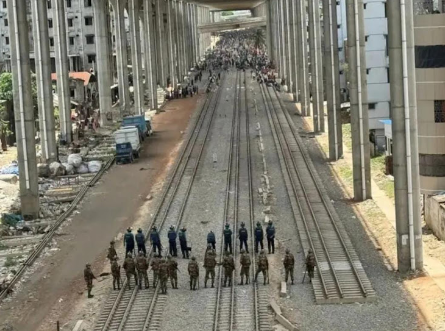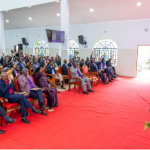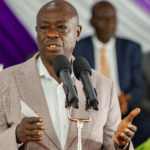Bangladesh’s top court has invalidated most of the quotas previously allocated for government jobs, which had led to violent clashes resulting in over 100 deaths. Previously, a third of public sector positions were reserved for the relatives of veterans from the 1971 independence war with Pakistan. The court has now reduced this quota to just 5% for veterans’ relatives.
The government has not yet responded to the ruling. A lawyer representing those in favor of maintaining the quotas called the decision “historic” and urged for calm, advising students to return home and cautioning against external interference.
Despite this, a spokesperson for Students Against Discrimination indicated that protests will persist until the government issues an official order aligning with their demands.
Dhaka’s streets are largely deserted due to a second day of curfew, though sporadic clashes continue. An armoured vehicle is stationed outside the Supreme Court, and soldiers are patrolling the capital.
Reports suggest some protest leaders have been arrested, and there are calls for justice for those who died in the unrest. The Supreme Court ruling stipulates that 93% of public sector jobs will be filled based on merit, with 5% reserved for veterans’ relatives and 2% for ethnic minorities or individuals with disabilities.
The quota system, which was scrapped in 2018 by Prime Minister Sheikh Hasina’s government, had been reinstated by a lower court last month, triggering the widespread protests.
In response to the Supreme Court’s ruling, the government has implemented a harsh crackdown, including a curfew and a communications blackout. Protest coordinators allege that police and the student wing of the ruling Awami League, known as the Bangladesh Chhatra League, have used excessive force against peaceful demonstrators, though the government denies these claims.
Bangladesh, despite being one of the fastest-growing economies globally, has struggled to convert this growth into job opportunities for university graduates. An estimated 18 million young Bangladeshis are currently seeking employment, with university graduates experiencing higher unemployment rates compared to their less-educated counterparts.



